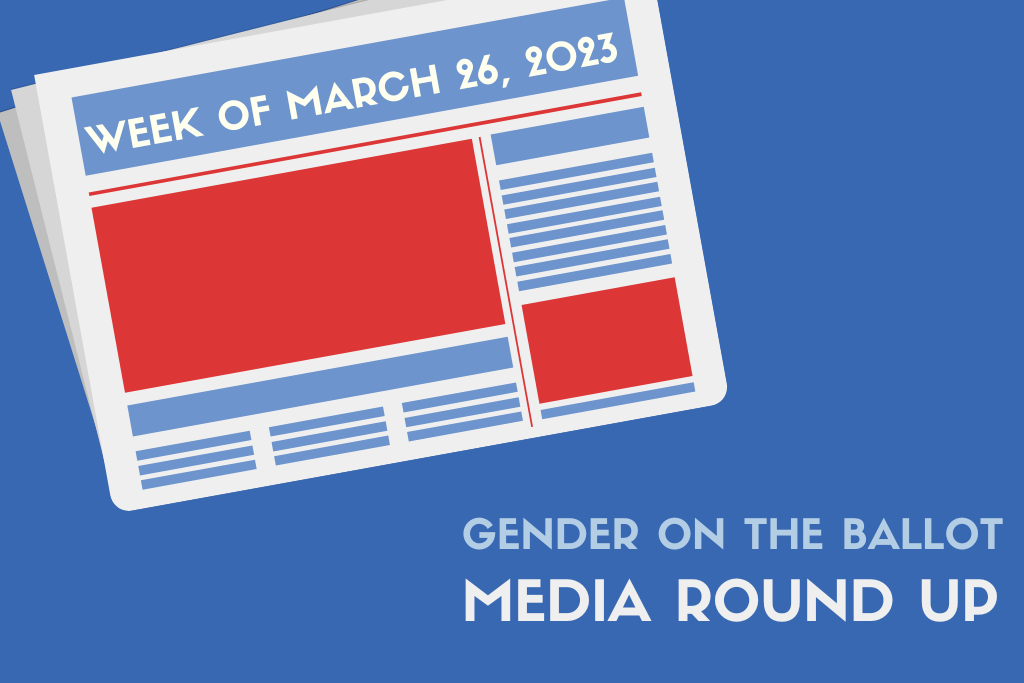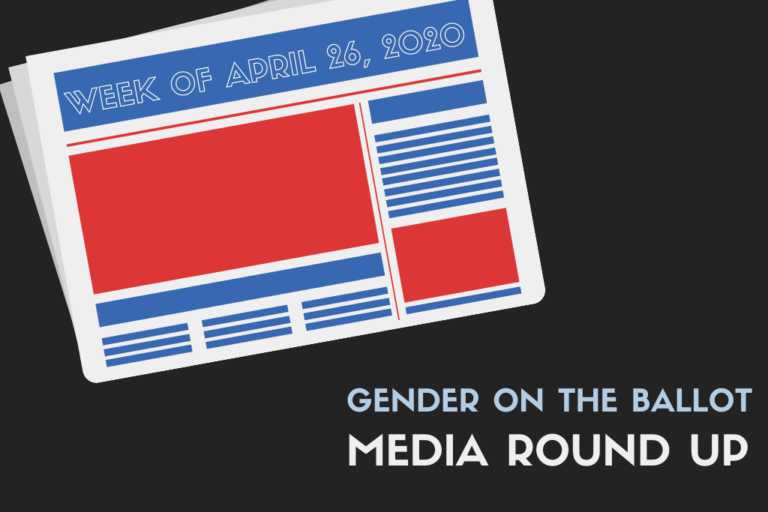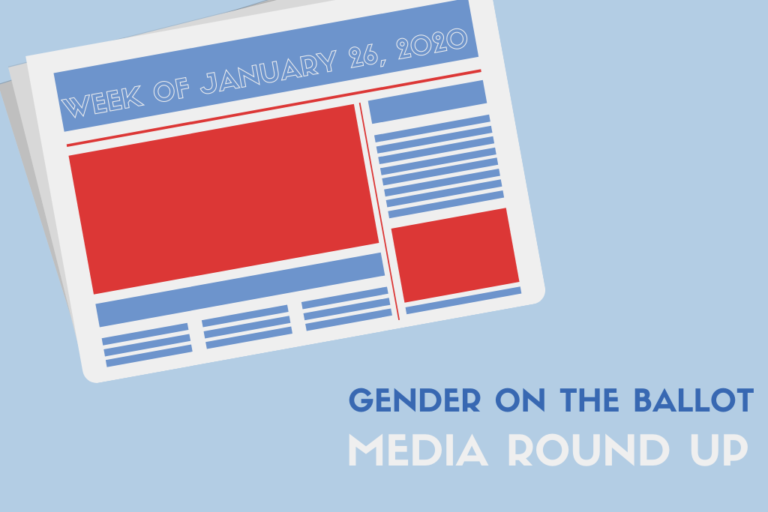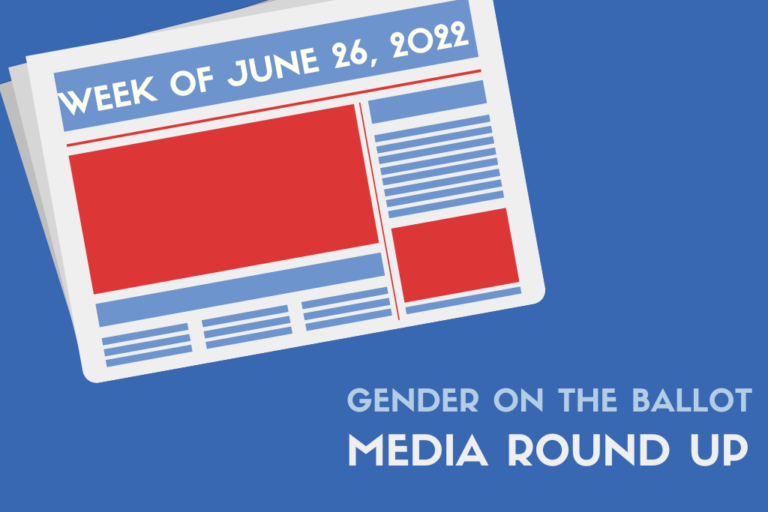Happy Friday! Welcome to our Media Round Up. Each week we’re collecting and sharing our…
Gender + Politics Media Round-Up: Week of March 26th

Happy Friday! Welcome to our Media Round Up. Each week we’re collecting and sharing our favorite gender + politics stories. Here’s what caught our eye this week:
Is Empowering Corporate Women Enough?
Emma Goldberg, New York Times
Chief is a women’s leadership network offering executive coaching and big-name specker sessions for female executives – essentially, an “old boys’ club” for women. Since its founding in 2019, the venture capital-backed company has grown to over 20,000 members and over $1 billion in value. On social media, some of Chief’s members have been critical of the group’s approach to racial diversity and its response to political issues affecting women like the overturn of Roe v. Wade. Although Chief’s founders Lindsay Kaplan and Carolyn Childers have addressed social issues pertaining to women, members want the network to be more socially and politically engaged.
Read the full story here.
In Photos: Vice President Harris visits Ghana
Washington Post Staff
On Monday, Vice President Kamala Harris began a week-long tour of Africa. At the start of the tour, the Vice President announced that the United States plans to, “… invest hundreds of millions of dollars in the [Africa].” Vice President Harris was met with concerns upon this announcement that the investment in Africa was the “… latest arena for America’s geopolitical game of chess with China and Russia.” Harris addressed this concern with reporters, stating that she had discussed the investment with Ghanaian President Nana Akufo-Addo, assuring him that the Biden administration is sincere in wanting to stimulate the economic development of Ghana and other countries in Africa.
Read the full story here.
‘Equality is overdue’: Congressional Black women lead fight for ERA as 28th Amendment
Cheyanne M. Daniels, The Hill
On Monday evening, members of the Congressional Black Caucus met to discuss the vital role Black women have played in the fight to enshrine the Equal Rights Amendment as the 28th Amendment to the constitution. Representative Cori Bush of Missouri and Representative Ayanna Pressley of Massachusetts co-founded and will co-chair the Congressional Caucus for the Equal Rights Amendment for the purpose above.
“It is long past time the Constitution affirms our equality and our very existence in the eyes of the law … The ramifications run deep as women faced daily sexism, pregnancy discrimination, pay inequities, sexual violence and persistent legislated attacks on our bodily autonomy. We need the ERA now,” said Ayanna Pressley at the Caucus’s meeting on Monday.
Read the full story here.
What would the economy look like if it worked for women?
Chabeli Carrazana, The 19th*
Last year, Heather McCulloch traveled across the country asking women the following question: “What would the economy look like if it worked for you?” The results of McCulloch’s question highlight the top challenges women of all backgrounds face regarding economic mobility and what they view as policy solutions to those barriers. The input was given by Black, Latina, Asian-American and Pacific Islander, Native American, LGBTQ+, and disabled women. In addition, women across the socioeconomic spectrum were interviewed. The initial results showed that women feel like the American economic model doesn’t work for them, and some of the top challenges are inflation, housing costs, and the gender pay gap.
Read the full story here.
Young Women and Girls in Florida Have a Message to Politicians: Leave Our Periods Alone
Rachel Janfaza, Glamour
Currently, Florida legislators are debating whether or not the “Don’t Say Period” bill aimed to “… limit education on sexuality and health in the state’s schools …” would stop young girls from speaking about their periods in the classroom. Elizabeth Rios, a 20-year-old Miami native, is one of the many young women speaking out against this proposed legislation. Rios has expressed concerns that the legislation is “dangerous” and “unnecessary,” especially considering that many young women get their periods before the sixth grade.
Read the full story here.






